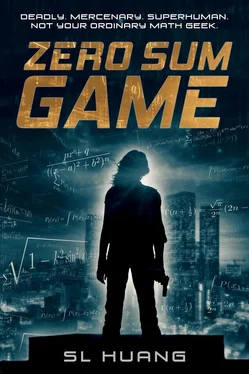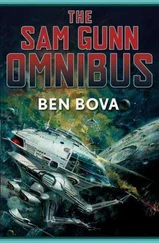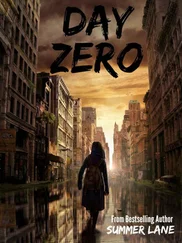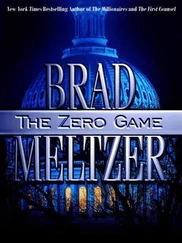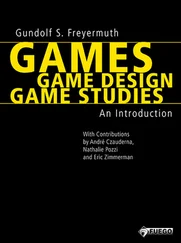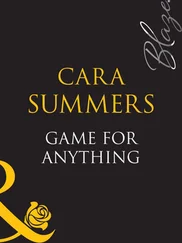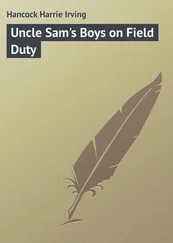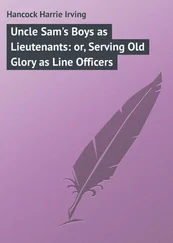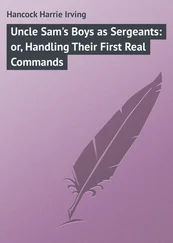And we were in terrible trouble.
Checker had unearthed the alcohol in Rio’s kitchen. He’d deemed it necessary, after what we had found.
“What happened to your no food or drink rule?” I asked. Not that I could blame him.
“Tequila doesn’t count,” he said, taking another swig. “It’s tequila.”
To be fair, the alcohol didn’t seem to impair his computer skills at all; his fingers hadn’t slowed on the keyboard. “You almost have my alcohol tolerance,” I said.
“Well, then you should be drinking, too! I need company in my paroxysm of misery here.”
“I don’t drink on the job,” I said. “I drink more than enough between jobs.”
“Between jobs, you say?” He took another swig. “You’re on, Cas Russell.”
“On for what?”
“You and me. Drinking contest. Once all this is over. I bet I kick your ass.”
I highly doubted that, but this wasn’t the time for a pissing contest. I snapped my fingers at him. “Hey. Focus, or I’ll cut you off.”
“I’m focused!” he protested, and to be fair, even my math ability could only detect the barest elision in the words. “I can’t do this without drinking. Too depressing.”
I couldn’t argue with him there.
Three hours ago we had realized—well, Checker had realized, with his uncanny savvy about finances and money laundering operations—that the sources of Pithica’s enterprises weren’t merely faceless organizations. To be sure, some were innocuous front businesses, or odd governmental funds, or false charities. But others…
Once we figured out where some of the money was coming from, we started looking more closely. And then more closely. It turned out the lion’s share of Pithica’s revenue came from…well. From places that would have been on Rio’s target list.
I stared at the monitor, feeling nauseated. “Dawna said Pithica basically owned the drug cartels,” I murmured. “She wasn’t lying.”
“Yeah, well, did she mention the human trafficking? Arms dealing? Owning corrupt governments? Holy shit.” Checker’s fingers drummed against the keys, and a few lines of scripting spit out on the screen. He was running his predictive programs again, the same algorithms he’d used on Kingsley’s data to hunt down Pithica in the first place. The same ones we’d been running now for hours, hoping for different results, ever since Checker had become suspicious of what we were looking at. “This is not good, Cas Russell. This is…it’s not good.”
Pithica’s economic model was ingenious. They wanted to make the world a better place, and they were. They hadn’t chosen to steal from just anybody; their benign-looking accounting was siphoning from and slowly strangling off some of the most extensive crime syndicates in the world. The cartels put up a good front, Dawna had said, but on the whole we’ve defanged them…eventually we’ll phase them out entirely, but for now they provide us with means of accomplishing our objectives—
No matter how we ran the mathematical models, if we let Pithica’s victims keep their own money, then they got to use it. And the violence, the human slavery, the human suffering… it was going to spike off the charts afterward.
If we knocked down Pithica this way, we were going to take a whole hell of a lot of innocent people with them.
“They really are doing good,” said Checker. “They weren’t just saying that. Who knows how much else they’ve been doing? They’re probably using all this money to help people even more.”
I swallowed.
“I’m not arguing that they aren’t Evil with a capital E,” said Checker. “But—I guess—are they? Yeah, they manipulate people, and not setting aside that they almost killed you and Arthur, but…it’s not like they’re going around starting wars. More like preventing them.”
“Preventing them by twisting people’s minds around,” I said.
“Yeah,” said Checker. “But…maybe it’s like what Professor X does, you know? I bet in their eyes they’re the heroes.”
“What about what they do to children? The children they take?”
“You mean like Daniela Saio? What about them? We don’t even know—”
“She was ten,” I said. “We know enough.”
“Yeah, and what did they do to her? Gave her telepathic superpowers? Dude, I’d go in for that in a heartbeat.”
I barely restrained myself from clocking him. “Take that back.”
“Whoa!” He twitched away from me. “Hey, sorry. Uh, that really upsets you, huh.”
“They’re kids,” I said. “They’re just kids.”
“I thought those kids were our bad guys.”
“Maybe now,” I said. “But they didn’t have to be.”
Checker was quiet for a moment, looking at his computer screens without seeming to see them. “You know, kids get hurt by the drug trade, too. I’m just saying. And human trafficking, a lot of it’s children. Slavery. Child prostitution. Child porn. It’s—it’s not good.” He scrubbed a hand over his face. “It’s a zero sum game. We take out one monster, the other rises up.”
“It’s not zero sum,” I corrected. “If that were true, taking out the drug cartels would increase Pithica’s power, not the other way around.”
“Stop being accurate when I’m trying to be dramatic,” Checker groused.
“Well, I’m just saying. If we could find a way to take out all the corruption in the world simultaneously, Pithica would get drained of its resources, not win, which means there is a game theoretic payoff where both monsters die—”
“Oh, great,” he shot back. “You come up with a way to uproot and eradicate all the crime syndicates and fix all social justice problems everywhere at the same time, you let me know. I’m not sure, but I think there might be a Nobel Peace Prize in it for you, if you need the incentive.”
I let my head drop into my hands. “So we take down Pithica, and people everywhere suffer. Or we let things stand the way they are.” I felt sick. And I hadn’t even been drinking.
“I’ve never met Dawna and her mind-mojo, and I’m still doubting doing this,” mumbled Checker, toying with the label on the tequila bottle.
“Ends justify the means, then?”
“What? Hey, whoa, trick question!”
“No,” I said. “It’s not.”
Checker frowned, considering. “You’re right,” he said finally. “You think you should always say ‘no,’ to that, don’t you? The saying? You say no, the ends don’t justify the means. Except—when you’re actually faced with the choice—”
“We say they have no right,” I said softly. “Except maybe they do. The math…” Dawna’s words came back to me, about the balance of more innocent lives saved at the expense of so few. The numbers agreed with Pithica, no question. The math was on their side.
But what if I was only having that thought because of Dawna’s influence?
But what if I only wanted to take her down because I wanted to be positive she hadn’t influenced me, so I was overcompensating—at the expense of innocent people?
But what if she wanted me to think that?
My head pounded.
“I’m not going to have a clear conscience no matter which way we choose,” said Checker. He took off his glasses and leaned back, rubbing his eyes. “What about you? Still think we should go ahead with this?”
I thought about what Rio had said. About free will, and humanity’s freedom to sin, and how nobody should take that away. Rio’s chosen path was clear: he was going after Pithica, and shit, if other villains rose up in their wake, he’d go after them, too.
Pithica might save people. They might be saving the world. But what they were doing was still wrong.
Читать дальше
